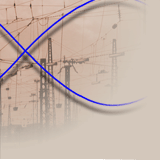Virtue is a Weak Force
Mike King
SOLAR
Ian McEwan
Jonathan Cape Ltd, 2010, 304 pp.,
£8.89, h/b, ISBN 978-0224090490
I read Solar on the Eurostar on the way to a conference in
Luxembourg on integral studies. Two of the opening keynote speakers
made reference to it, one quoting a passage I had just read. How’s
that for synchronicity? But Solar’s unlikeable womanising
protagonist, Michael Beard, would have had only scorn for such a term.
He is the scientist that the SMN despairs of: an unremitting hardboiled
positivist. He is also a man that feminists would despair of, taking
no interest in children, or sharing the housework, or expressing his
emotions bar lust. But he is very bright, and when he sets out to woo
his first love at Oxford, a humanities student, he bones up on Milton
and wins her with his recitation – though he suspects the poem
is a ‘monstrous bluff’. This in fact is at the core of the
novel: a ‘Two Cultures’ clash, a little reminiscent of David
Lodge’s Thinks… Where Lodge’s novel places
the emerging science of consciousness at its heart – and is almost
a primer of the discipline – Solar is concerned with
the science of global warming.
Beard is a Nobel Laureate coasting on his former success, now overweight
and uninspired until a young PhD leaves him notes on artificial photosynthesis.
He heads up a Government effort to find new energy sources, and shares
out amongst the young PhDs the task of reading crank submissions by
the hundred, most of them variations on perpetual motion machines (or
what are now euphemistically called ‘over-unity devices’).
This gives us an early insight into Beard’s scientific philosophy
when he dismisses zero-point energy and then reflects on quantum theory.
‘What a repository, a dump, of human aspiration it was, the borderland
where mathematical rigour defeated common sense, and reason and fantasy
irrationally merged. Here, the mystically inclined could find whatever
they required, and claim science as their proof.’ This is not
the first time McEwan has targeted mysticism: in Enduring Love
the protagonist, a science writer, is stalked by a mystic. McEwan has
Beard reflect later on about Einstein’s discomfort with quantum
theory – about ‘long-range spooky correlations’ –
and Beard’s own lost hopes to be the scientist to resolve the
paradox.
Beard is a ‘realist’ in the philosophy of science, and this
gets interesting when he first encounters serious academics who claim,
for example, that the gene is a human construct. This is where the two
cultures become more specifically physics on one side and the social
sciences on the other, in this instance the discipline of social anthropology.
Beard had learned that ‘humanities students were routinely taught
that science was just one more belief system, no more or less truthful
than religion or astrology.’ McEwan’s brilliance here is
to understand these two cultures as almost hermetically sealed from
each other, yet be able to paint convincing portraits on either side.
We learn this about Beard, a perfect little detail: ‘He has always
thought this must be a slur against his colleagues on the arts side.’
It is quite credible that a physics graduate with a stellar career in
the subject should have a mindset so far removed from the arts as to
find the notion that they think science a social construct a slur on
them. Nor do we find it surprising that Beard hasn’t often encountered
the term ‘hegemony’ in his discipline.
While McEwan’s humanities professors are no more likeable than
Beard, McEwan appears to takes the realist position in science. When
it comes to climate change one could argue that this is perhaps a vital
message to get over. Beard encounters a lecturer in urban studies and
folklore attending one of his presentations on solar panel technology
and is alarmed to hear: ‘I’m interested in the forms of
narrative that climate science has generated. It’s an epic story,
of course, with a million authors.’ The degree to which humanities
graduates genuinely believe that science is a construct or social narrative
and nothing else, is the degree to which the findings of climate change
science will be shrugged off by humankind. But McEwan has Beard reflect
on another human dynamic in the response to global warming: that ‘virtue’
is too weak a force: just ‘going to the bottle bank and turning
down the thermostat and buying a smaller car’ will only delay
the catastrophe.
The novel is not all science of course: Beard’s utter caddishness
propels him towards his own catastrophe in a drama that is filled with
women who inexplicably love him and want to have his babies, and filled
with antagonists he has trampled over in his rise to eminence. The novel
also includes some extremely funny moments: I laughed aloud on the Eurostar
at one point over an encounter Beard has on a train involving a packet
of crisps and a bottle of mineral water. But most of all this is a novel
where science – real serious science – is the backdrop to
the drama, and at the same time the subject of thoughtful presentation.
The climate change science itself does not get a great deal of airing
– which is probably a good strategy given its complexity –
but the broader questions of the nature of science do. The kind of realism
that it takes to work in the hard sciences is an almost invisible metier
for its practitioners, so there is a very real jolt when such practitioners
encounter the doctrines of the humanities. The Sokal incident some years
ago is a good example of the gulf of comprehension across these two
communities.
Another contentious point raised by Solar is the idea that
a scientist can master the humanities more easily than the other way
round. Richard Dawkins for example appears to speak eloquently about
poetry, but it is rare for an arts person to make much progress in physics:
the maths is too hard. The physicist Richard Feynman once made a deal
with a painter friend to exchange skillsets, but the artist gave up
before long. Feynman however continued to paint and even get regular
exhibitions long after. Is this imbalance inevitable?
Top marks to McEwan for pursuing such questions in a highly entertaining
form.



